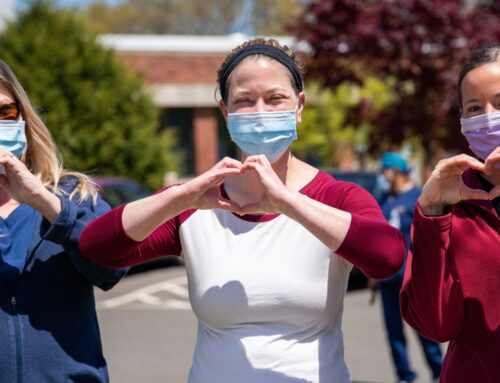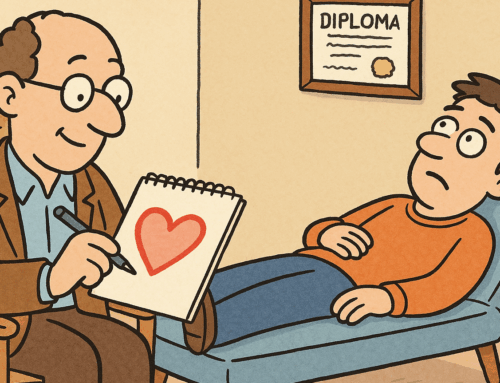Getting Through Barriers to Kindness
“When kindness has left people, even for a few moments, we become afraid of them as if their reason had left them. When it has left a place where we have always found it, it is like a shipwreck; we drop from security into something malevolent and bottomless.”
—Willa Cather
Kindness is the result of “good, careful thinking” (Yu & Craft, 2021). It’s an unbiased commitment to the wellbeing of others above all other considerations. From my professional experiences and observations, a key to being kind and to unlock its benefits is an unrelenting pursuit of cognitive flexibility. Karen Yu and Warren Craft explain kindness as “generosity and caring, offered without expectation of anything in return” (p. 30). Kindness, therefore, is built on committed, curated thinking patterns. Simply, kind acts make a happy life (Lyubomirsky, 2008).
I am a long-time fan of Survivor, a reality competition where contestants are randomly assigned to “tribes,” then navigate a complex social game of relationships, deception and physical competition. As an armchair analyst (not as a hopeful contestant who obsessively practices untying knots or starting small fires in my backyard), I’m continually fascinated by the blinding power of affiliation; the willingness of contestants, season after season, to abandon values, withhold compassion, and reject contradictory information. They rigidly align with an arbitrarily assigned, time limited, contrived community with an accompanying ideology and often forget their morals, compassion and even kindness in the process. Could this be relevant to real life?
Fortunately, outside of a reality competition without the allure of a cash prize for the last one standing, expressing kindness does not make you vulnerable to be voted out. So, what are the “real life” barriers to expressing or engaging in acts of kindness? What does it mean for me in my own personal and professional experiences and interactions? What opportunities for improvement do I have in my own thinking and acting? Barriers are countless, but so are opportunities to be kind. “Good, careful thinking” must be cultivated; it’s a commitment. Writing to nurses, the determined heroes helping the most vulnerable and downtrodden, Cynthia M. Clark said, “Igniting the superpower of kindness can cause a profound ripple effect of connection and healing from life’s myriad stressors” (p. 308).
Years ago, in my professional life, I led innumerable group therapy sessions with individuals of various backgrounds and ages. I saw strangers come together, work on problem solving techniques and develop ways to help one another. In these sessions, unexpected acts of kindness were always profound and enduring. A validating compliment from a stranger that acknowledged another’s progress, focused the discussions to help group members that were hesitant to share. Importantly, but simply, acts of kindness were predicated on the decisions of individuals. Nearly in every situation, expressions of kindness led to more acts of kindness. These random acts would then become established standards accompanying the group members’ interactions. On other occasions, I observed less favorable interactions that were unnecessarily harsh and critical. Often this resulted in an established pattern of the group to challenge, criticize and contradict each other no matter what and above all else. Again, decisions of individuals lead to enduring patterns. Again, decisions of individuals that led to enduring patterns—the results of curated thinking patterns leading to thoughtless actions and automatic behaviors.
I’ve reflected on personal experiences in my life and how the way I think impacts the way I show up. Kindness is contagious and my own thinking can be a barrier to expressing kindness and deepening connections with others and rediscovering parts of myself left dormant. A few years ago, my wife warmly and decisively declared it was time to get the family a dog. I was a cat person. I had a cat as a young kid and after a few intervening years grieving her passing, we adopted a neighbor’s kitten during my adolescence. Though I developed allergies to cats in my adulthood I still belonged to the legion of cat lovers. Dogs didn’t make sense to me. The people who lived with them and joyfully cleaned up their waste didn’t make sense to me, especially those who posted selfies or took family photos with the dog wearing a matching sweater or scarf. It was unassailably clear in my mind that I was absolutely not a dog person in any way. I belonged to cats, even through allergy induced estrangement. I was resolute. The late Salvador Minuchin wrote, “Certainty is the enemy of change.”
Days later, though still a little indignant, I welcomed with my family Rose-the-Dog. Now in hindsight, this, of course, was one of the best decisions for our family. Aside from the Jedi mind powers of labradoodles, countless morning walks, car rides, fetch sessions, and mountain bike rides with my new friend more brightly illuminated for me an important opportunity to remember: I was wrong. More importantly, I was willfully wrong. My own thinking kept me from greater possibilities. Walks with Rose lead to unexpected conversations with strangers or interactions with kids in the neighborhood who seem timid, but want to give Rose a pat on the head. I have earned an unwritten certification of “Good Person” from a legion of animal and dog lovers. If you happen to receive a holiday greeting card from me, you’ll see Rose-the-Dog smiling between our kids in an annual family photo. I’m on track for matching ascots.
Kindness is always right and is the result of “good, careful thinking.” Bruce Cockburn adds the value of perspective: “Little round planet in a big universe, sometimes it looks blessed, sometimes it looks cursed. Depends what you look at obviously, but even more it depends on the way that you see.”
Written by: Kendall Simpson, MSSW, LCSW, MHA
References
Cather, W. (1990). My mortal enemy. New York: Vintage
Clark, C. M. (2021). Connecting and healing through the superpower of kindness. Journal of Nursing Education, V. 60, N. 6.
Cockburn, B. (1991). Child of the wind. On Nothing But a Burning Light.
Ko, K., Margolis, S., Revord, J. & Lyubomirsky, S. (2021). Comparing the effects of performing and recalling acts of kindness. Journal of Positive Psychology, 16:1.
Lyubomirsky, S. (2008). The how of happiness: A new approach to getting the life you want. Penguin Press.
Minuchin S., Reiter, M., Borda, C. (2013). The craft of family therapy. P. 4. Routledge







